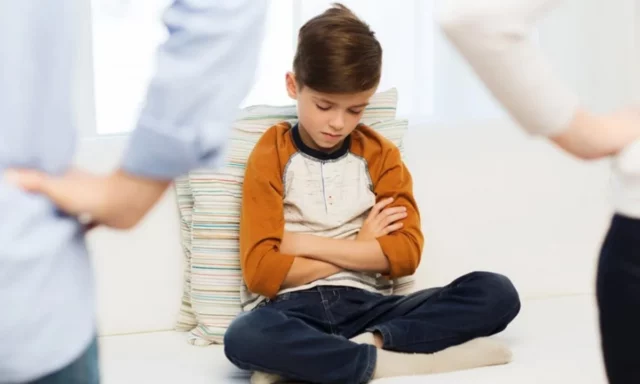Emotional education consists of learning to relate in an appropriate way with our emotions and those of others, and thus improve our relationships with ourselves and with the people around us (family, friends, colleagues, etc.). All emotions are necessary, some are more pleasant (joy) and others less (sadness), but they serve to provide us with information and act accordingly.
Do adults value the emotional world of children?
In society, there is an increasing awareness of the importance of taking into account the emotional world of children and adolescents, since it is essential for the proper development of children. However, many adults do not know how to identify and manage their own emotions, so they are not able to empathize and validate how the child is feeling to help regulate their emotion.
It is essential to explain to them what they are feeling, why they feel this way and how they can express it in an appropriate way. When we do not give space to that emotion and/or we invalidate it, it ends up expressing itself in a dysfunctional way, harming their social and family relationships and generating a high degree of discomfort in the child and their environment.
Now that we’ve recently celebrated Halloween, let’s talk about fear. Is scary jokes or scares recommended for children? From what age is a child aware of celebrating this tradition?
In general, scares and certain scary jokes are behaviors that can cause a lot of fear and distress in young children. We must assess each particular case. In addition to age, many other factors influence such as the child’s temperament, their emotional reactivity or their response style, among others.
Like scares, there are children who love to dress up as witches and zombies and, on the other hand, others who prefer not to. Therefore, we must give them the option of playing or dressing up as whatever he or she wants, because the ultimate goal is to enjoy and have a good time.
How does the fear of death affect children?
Children need an adult to explain to them what death is in a way appropriate to their age, for example, in young children the use of stories and metaphors is often useful.
Although it is difficult and painful to talk about death with a child, it is necessary to do so to minimize their concern and resolve their doubts, explaining that it is a natural process that occurs in all living beings. In addition, preventing the child from talking about the subject and not answering his questions and concerns, can generate more insecurity and concern.
If you have recently lost a close relative, how can we deal with this situation?
We must find the right place and time when we adults feel relatively calm. Explaining to them what has happened and what it means to us in a calm way will allow the child to better handle the situation and understand what is happening.
Each child is unique and will react differently depending on their personality, age, coping style, etc. However, we must respect their way of expressing pain, being loving and patient with him or her. We must listen to their concerns, allow the child to cry and let off steam, normalize and validate their sadness and express that we all miss that person. Even if they see us crying and we normalize it as a part of the process (grieving), they will understand that it is okay to cry if we need to and it will make it easier for them to do so.
Making them participate and accompanying them in the farewell rituals (burials, funerals or farewell letters…) can help them understand the loss, whenever they want and we see that they are accompanied and protected. This will allow the child to say goodbye and gradually accept the loss of the loved one. However, we must respect that the child does not want to go and for this we can ask a trusted person for him or her, to accompany him during those moments.
Another fundamental aspect is that the child can continue with their routines as soon as possible, such as going to school or following their routines, this will allow them to feel more secure and in control of the moment.
However, in cases of sudden and traumatic deaths, we must protect children by taking them away for a while until the situation stabilizes. For example, if the parents are overwhelmed, we must delegate the care of the minor to a trusted adult, such as an uncle, grandfather, etc.

How does a child learn to redirect or know how to carry fear?
Children need an adult to help them understand that discomfort and concern that corresponds to fear, validate their emotion and allow it to be expressed in order to be safe and calm the child.
Children’s brains are still immature and their ability to regulate their emotions is still insufficient, so we adults must act as a guide, teaching them to regulate themselves emotionally through what we say, how we say it, and how we act accordingly.
When does a child need professional help because of their fear? Where is the limit?
When the child’s fear reaction is disproportionate and causes suffering, interfering with their daily routines and, possibly, with their family environment. It is important to ask for professional help in these cases, preventing fear from being extrapolated to other situations or contexts.

